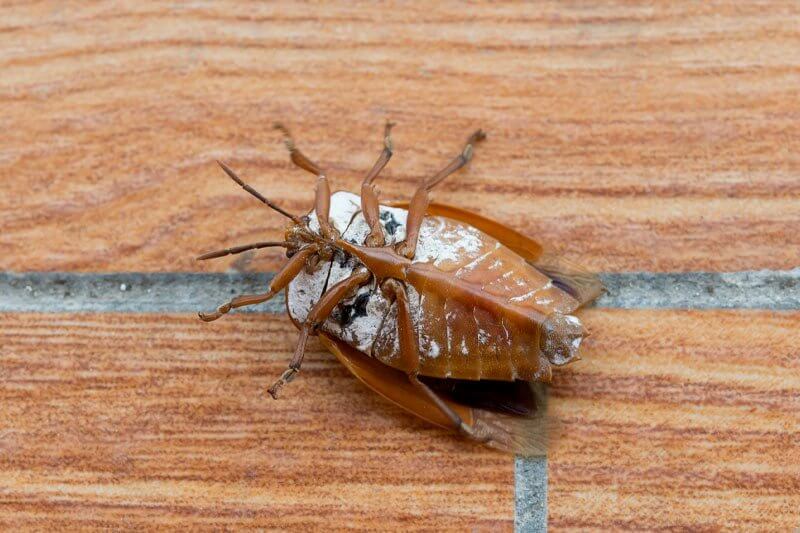Bed bugs, like every other living organism, can die due to starvation. But how long does it really take to starve them? And can you completely get rid of a bed bug infestation through bed bug starvation?
Bedbugs can easily survive up to over a year without feeding on blood. In slightly higher temperatures, they can survive for about 4 months. But they can survive way longer when they are in a room that is less than 55 degrees Fahrenheit.
As a result, trying to get rid of a bed bug infestation through starvation is not only impractical but also unreliable.
Here is everything that you should know.

Technically, you can kill bed bugs by starving them. But as a bed bug control strategy – of completely getting rid of bed bugs from a home – it is impractical.
Why? Because of the following reasons:
- Leaving a unit unoccupied for extended periods because of bed bugs does not make financial sense. This is so especially considering the fact that bed bugs can be killed instantly by simple techniques like steaming.
- Even after such a long period, you can’t really be sure that they are gone as bed bugs do not go away by themselves as easily. If there is a need, they can disperse to adjacent buildings when searching for a meal.
- Different life stages can survive for different periods without feeding. Their ability to survive also depends on environmental temperatures. This makes it an unpredictable and inefficient way of tackling a bed bug problem.
What does a bed bug's ability to survive without feeding depend on?
Bed bugs can go for a long time without feeding on blood. However, this ability depends on a few factors. Here are the main ones.
Stage of development
In studies designed to find out how long bed bugs can go without blood, it was found that the age of the bed bug played a significant role in determining the bed bug’s ability to survive without food.
The least developmentally advanced bed bugs are the least likely to survive than the ones that are more advanced in the bed bug cycle.
First instar bed bugs are the ones that succumb to starvation first. They usually die within the first month of existing without blood. Fifth instar bed bugs and adult bed bugs tend to be way more resistant to the effects of starvation. They tend to last up to 4 months.
Temperature
Temperature plays a large role in determining how long the bed bugs can go without feeding. In the study that was published in the National Library of Medicine, the maximum number of days that adult bed bugs could survive without food (blood), was 135 days.
Studies in which the bed bugs were starved in an environment with lower temperatures showed that adult bed bugs could survive way longer. It is in these studies that bed bugs were found to be able to go for up to more than a year without feeding.
Type of bed bug
There are different types of bed bugs. It is estimated that there are over 100 different strains. Each of these has its own level of tolerance and resistance. This includes the period of time that they can go without feeding before starving to death.
In the study mentioned above, the researchers noted that the results of their studies were different from those that were carried out by other researchers at almost every stage of the bed bug’s life cycle. They concluded that this was probably because different bed bug strains are physiologically different. Therefore, they had varying degrees of resistance.
What makes bed bugs survive for so long?
Bed bugs can go for extended periods without feeding because they readily go into diapause when they can’t have access to a blood meal.
In this state, the bed bug’s metabolism slows down. It doesn’t move as much. And its body goes into an ultra-conservation mode as far as energy consumption is concerned.
This state allows it to go for long periods without needing to feed. But once they can get access to a warm body and blood, they simply snap out of this state and resume their regular activity.
How frequently do bed bugs feed?
Generally, an adult bed bug will feed after every 3 days to a week. Bed bugs that are at an early developmental stage tend to feed more frequently than that.
However, how often they feed will depend on the availability of feeding opportunities. It will also depend on environmental temperature. This is so mainly because they always have the option of entering into a dormant-like state when conditions are unfavorable.
Can you starve bed bugs?
Yes, you can starve bed bugs by isolating them. Here are a few ways in which you can achieve this.
- Place infested items in an air-tight plastic bag. Bed bugs can’t chew through the plastic. Therefore, as long as the plastic remains sealed, the bed bugs will be trapped inside the bag. And so if you want to starve the bed bugs, keep the plastic sealed for about a year. Depending on the strain and age of bed bugs, they can die in a matter of months, or it may take more than a year for them to starve to death.
- Encase box springs and mattresses in protective covers. This works in cases where bed bugs have taken over a bed. If one doesn’t want to discard the bed, and they still want a reprieve from bed bug attacks, they can encase their beds and bed springs in protective covers. These covers are designed to contain bed bugs. And so you can effectively starve the bed bugs to death by simply keeping the covers closed.
- Abandoning an infested house. Theoretically, you can starve the bed bugs in a house by simply abandoning it. Any bed bugs that live there will not find a blood meal. They will enter into a period of dormancy. Provided no one comes back, or no one lives near the house, the bed bugs will eventually starve to death. However, as a method of bed bug control, this is usually impractical, time-wasting, ineffective, and highly inefficient.
How can you tell if bed bugs are gone?
You can tell that bed bugs are gone when you no longer notice the common signs of bed bug infestations. These signs include:
- Red spots on your bedding. These spots appear as a result of you accidentally crushing bed bugs. It may also be a result of bed bug bites.
- Bite marks all over your arms, legs, and the rest of your body
- Stinging pain every time you switch off the lights and try to sleep
- Bed bug excrement. It is usually tiny and appears as dark spots.
- Crawling bed bugs
- Pale yellow skin-like substances. These are often shed by nymphs as they advance along the life cycle
- Bed bug eggs
Looking for a bed bug exterminator?
If you need professional pest control services, GoTreeQuotes.com offers a FREE service that quickly matches you with the top-voted local pest control experts in your area.
You can get 3 estimates fast by real certified experts in your area in just 2 minutes. Here is how it works.
- You scroll to the top of the page and enter your Zip code.
- Answer questions about your bed bug problem
- Your details will be forwarded to three local experts.
- You will then receive a price estimate for the job and some friendly advice.
IMPORTANT: There is no obligation to hire. This is a free tool and service to be used at your pleasure.

FAQ's
No, cleaning does not get rid of a bed bug infestation.
Vacuuming can suck in some bed bugs and their eggs. Steam cleaning your carpets can kill bed bug eggs and a couple of bed bugs. But these methods are not effective enough to completely get rid of an infestation.
There is also the fact that bed bugs are really good at hiding, and most cleaning methods aren’t good enough to get all the bed bugs in crevices, clothing, and other hard-to-reach areas.
However, this does not mean that cleaning does not help. It helps by:
- reducing clutter and reducing the number of places that bed bugs can hide
- exposing bed bugs and making it easier to detect them
- increasing the effectiveness of bed bug treatments — since the bed bugs won’t be able to hide behind dirt and debris
- killing some bed bugs and eggs. This is especially so in cases where you wash clothes and laundry in hot water. Steam cleaning is also known to kill bed bugs instantly.
No, bed bugs do not stay on your skin after a shower. In fact, they never stay or stick to a person’s skin. Instead, they prefer to stick to clothes and other easy-to-hide areas.
They only come out of hiding to bite and suck on your blood. And immediately they are done, they go back to hiding.
Therefore, it is unlikely to find bed bugs on your skin at any time. You are more likely to find them in your clothes. As a result, after a shower, you shouldn’t wear the same clothes. If you want to avoid bed bugs, you should launder them in hot water immediately.
Yes, you can have bed bugs in one room and not the other. This will happen in cases where the infestation has just started and the infested item or person has just gone to one room.
However, as the bed bugs multiply, it is almost impossible to have them in one room and not the other. This is because:
- People are likely to move in and out of the infested room. When they do, they will carry the bed bugs from one room to the next. This will spread the infestation.
- Accidentally or intentionally moving items from one room to the next can easily spread the bed bugs to another room
- As the bed bugs multiply, they will literally crawl from one room to the next, in search of a blood meal.
Yes, bed bugs can live in walls if the walls have cracks. They can also live in dirty corners of the walls if they can get enough of a hiding spot. They can also live behind wallpaper, seams of moldings, and behind any fixtures or structures that have been installed on walls.
However, they don’t live in exposed parts of the wall.
You keep bed bugs from spreading to other rooms by killing and removing them as soon as you detect them. By doing so, you deny them the chance to multiply. You also reduce the chances of people accidentally transferring them from room to room by either moving infested items or by literally carrying them to other rooms — bed bugs are excellent hitchhikers.
Yes, bed bugs can bite your private areas. They do not discriminate in terms of biting areas. All that they are concerned with is getting a blood meal. And if your private areas are the most convenient for a given bed bug, it will bite.











